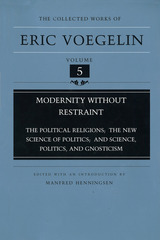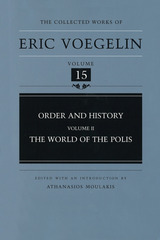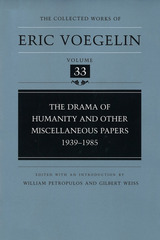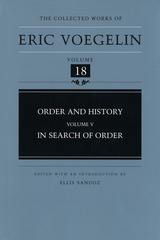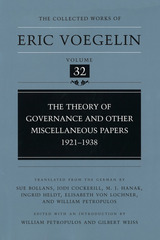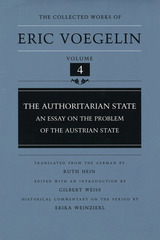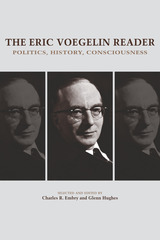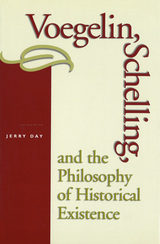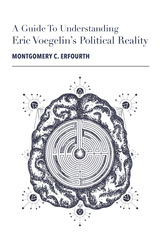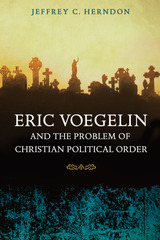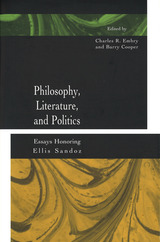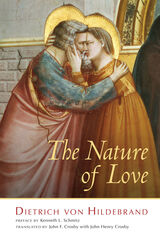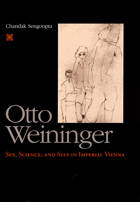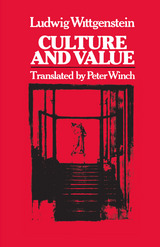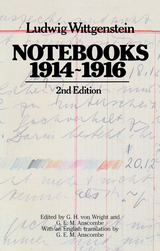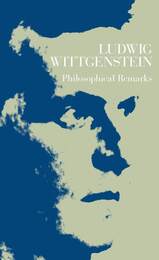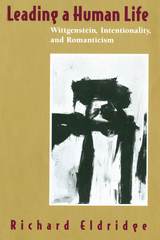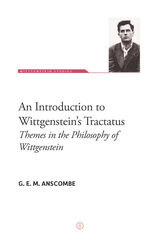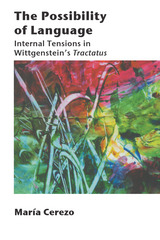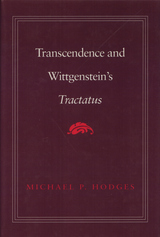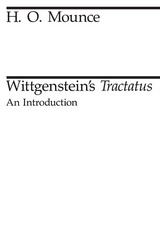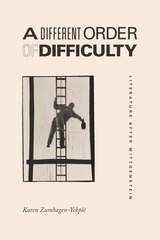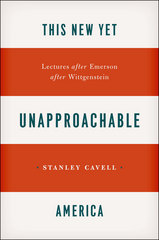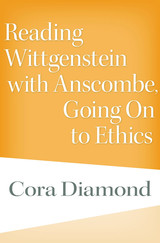Otto Weininger: Sex, Science, and Self in Imperial Vienna
University of Chicago Press, 2000
Cloth: 978-0-226-74867-2
Library of Congress Classification B3363.W54S46 2000
Dewey Decimal Classification 193
Cloth: 978-0-226-74867-2
Library of Congress Classification B3363.W54S46 2000
Dewey Decimal Classification 193
ABOUT THIS BOOK | AUTHOR BIOGRAPHY | REVIEWS | TOC
ABOUT THIS BOOK
Turn-of-the century Vienna is remembered as an aesthetic, erotic, and intellectual world: the birthplace of Freud and psychoanalysis, the waltz, and novels of Schnitzler. The contexts of this cultural vibrancy, Chandak Sengoopta argues, were darker and more complex than we might imagine.
This provocative, enlightening study explores the milieu in which the philosopher Otto Weininger (1880-1903) wrote his controversial book Sex and Character. Shortly after its publication, Weininger committed suicide at the age of twenty-three. His book, which argued that women and Jews were mere sexual beings who lacked individuality, became a bestseller.
Hailed as a genius by intellectuals such as Ludwig Wittgenstein and Karl Kraus, Weininger was admired, not for his prejudices, but for his engagement with the central issues of the time—the nature and meanings of identity. Sengoopta pays particular attention to how Weininger appropriated scientific language and data to defend his views and examines the scientific theories themselves.
This provocative, enlightening study explores the milieu in which the philosopher Otto Weininger (1880-1903) wrote his controversial book Sex and Character. Shortly after its publication, Weininger committed suicide at the age of twenty-three. His book, which argued that women and Jews were mere sexual beings who lacked individuality, became a bestseller.
Hailed as a genius by intellectuals such as Ludwig Wittgenstein and Karl Kraus, Weininger was admired, not for his prejudices, but for his engagement with the central issues of the time—the nature and meanings of identity. Sengoopta pays particular attention to how Weininger appropriated scientific language and data to defend his views and examines the scientific theories themselves.
See other books on: 1880-1903 | Austria & Hungary | Human Sexuality | Self | Vienna (Austria)
See other titles from University of Chicago Press

